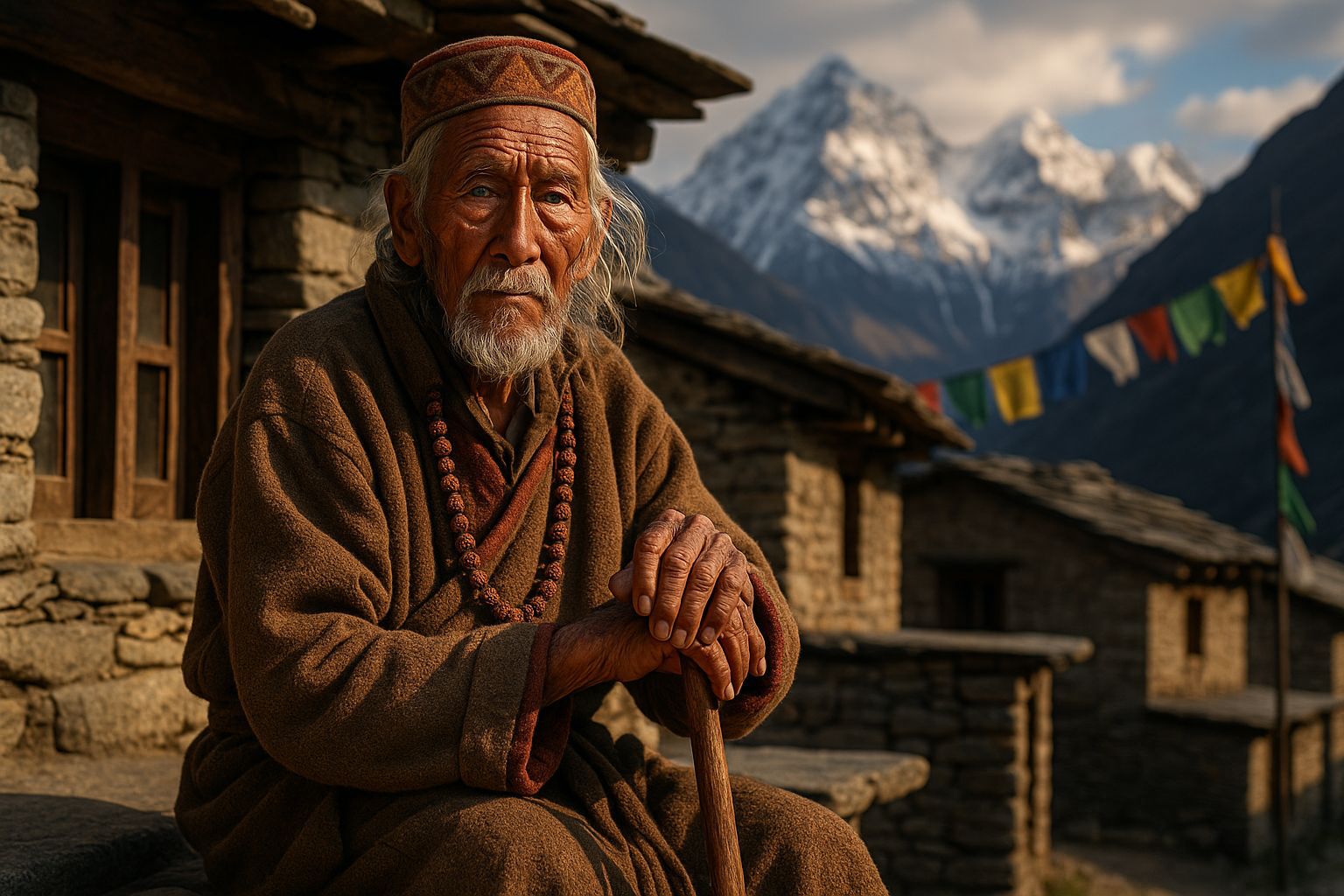GUNJI VILLAGE, UTTARAKHAND
You don’t climb mountains to find God. You climb mountains to find the strength God already gave you.
Devi Lal’s eyes hold the kind of clarity that comes from 82 years of breathing air so thin it strips away everything unnecessary. His weathered hands gesture toward peaks that have been his neighbors since birth, speaking of them like old friends who occasionally demand respect.
He wasn’t always a mountain mystic. “Spent my youth trying to leave this place – too remote, too hard, too cut off from the modern world. Went to Delhi in the 1960s, worked in construction, sent money home like a good son.”
The city nearly broke him. “Couldn’t breathe properly, couldn’t sleep without mountain silence, couldn’t understand why people lived so complicated lives for such simple things. Returned home after two years, swore never to leave again.”
His wisdom comes from decades of watching pilgrims struggle with altitude, weather, and their own expectations. “City people bring too much stuff to mountains – too much gear, too many plans, too many fears. Mountains teach by taking away, not by adding.”
He’s become unofficial counselor to pilgrims experiencing altitude-induced panic and spiritual overwhelm. “Thin air makes some people crazy, makes others wise. Difference is whether you fight the mountain or listen to what it’s teaching.”
His weather predictions, based on cloud patterns and animal behavior, consistently outperform satellite forecasts. “Technology sees data. We see relationships – how wind talks to trees, how animals prepare for weather changes three days early.”
When I marveled at his contentment despite material simplicity, he laughed. “Simple doesn’t mean easy. It means essential. At this altitude, you learn the difference very quickly.”
Some elders share memories. Devi Lal shares a way of seeing that transforms mountains from obstacles into teachers.
– Zara
